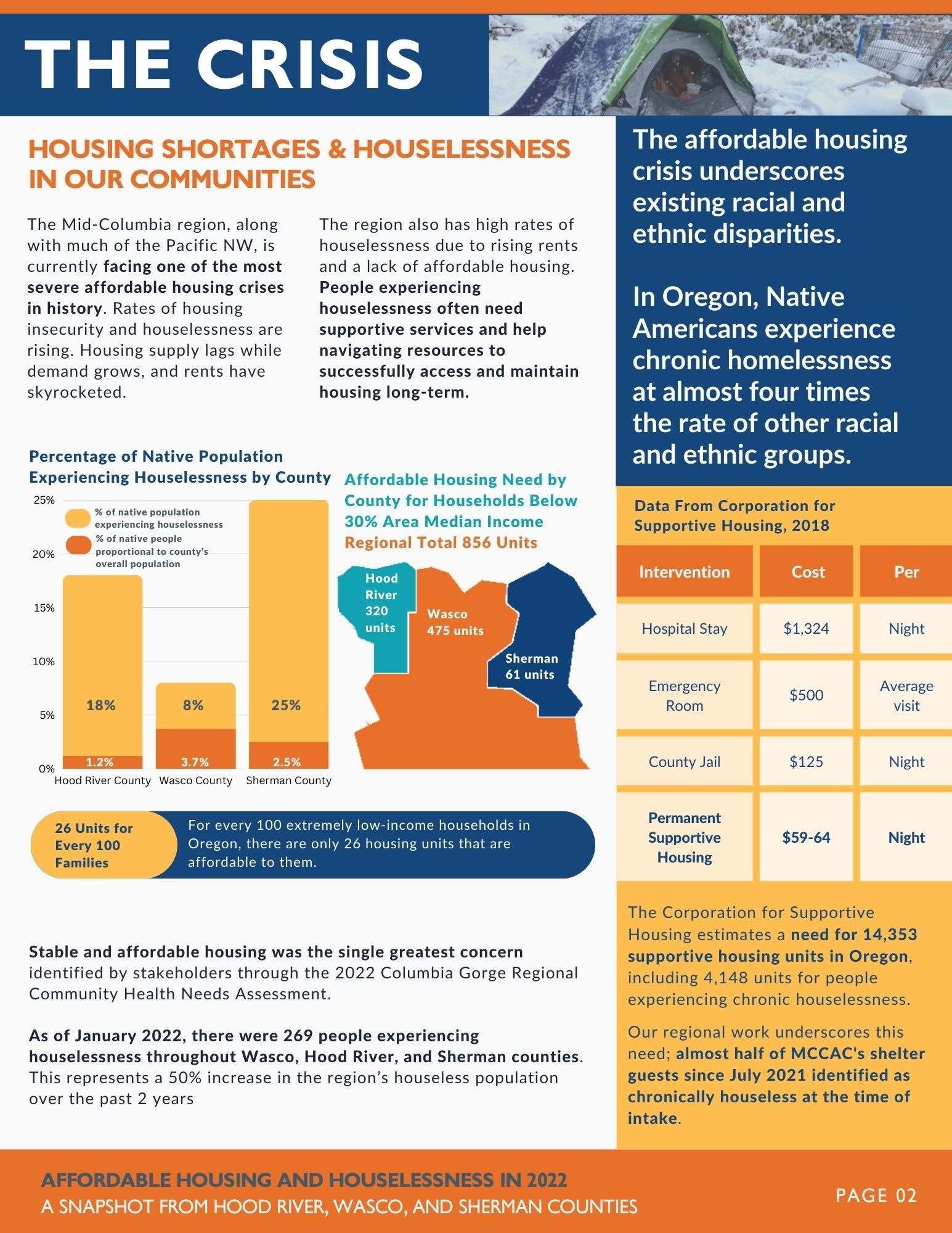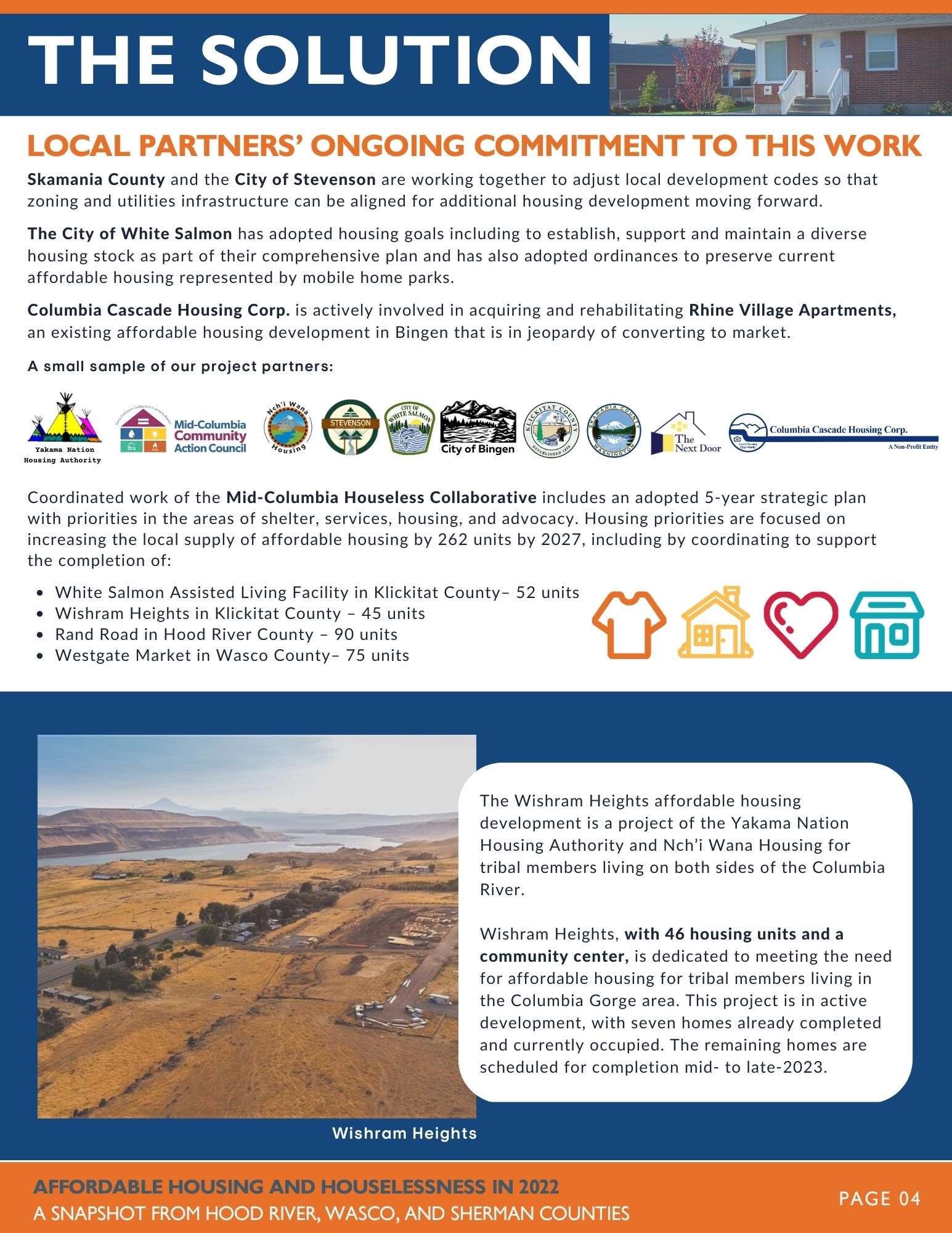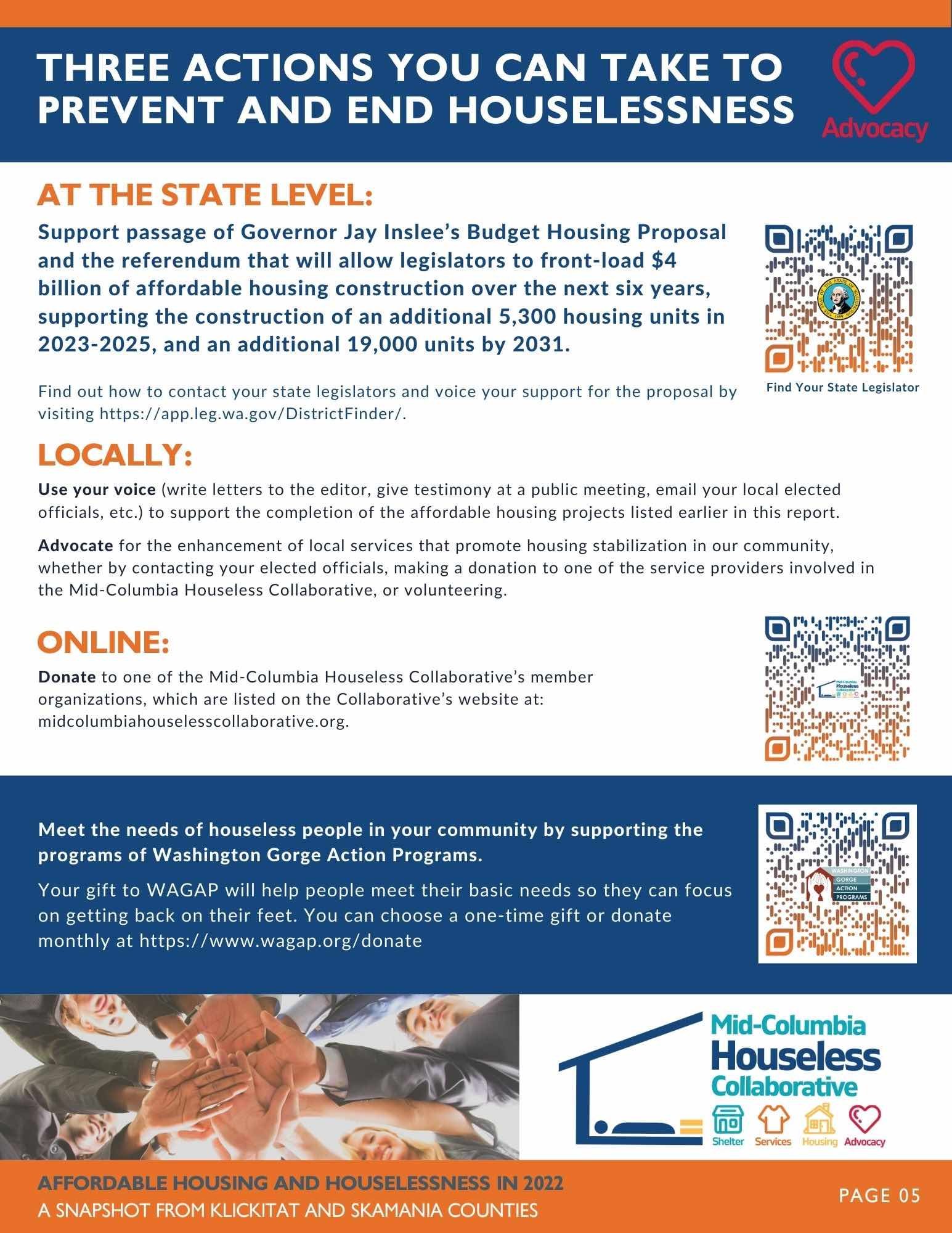MCHC 2022 Report Details Four Portraits of Houselessness in the Mid-Columbia Region
by Cole Goodwin
The Mid-Columbia Houseless Collaborative (MCHC) includes nearly 40 members, including health, housing, and social service agencies, local city and county governments, culturally responsive service providers, and people with lived experience of houselessness.
MCHC has released their 2022 report which offers a snapshot of the affordable housing and houselessness crisis and evidence-based solutions in action in Hood River, Wasco, Sherman, Skamania, and Klickitat Counties.
The report draws attention to the ongoing crisis of housing shortages and houselessness in the region.
“The Mid-Columbia region, along with much of the Pacific NW, is currently facing the most severe affordable housing crisis in history,” reads the report.
The report also points out existing racial and ethnic disparities in Oregon in Washington.
In Oregon and Washington, Native Americans experience chronic homelessness at almost four times the rate of other racial and ethnic groups.
The report offers several evidence based solutions including rapid re-housing,
Mid-Columbia Community Action Council’s local case study on rapid rehousing in Wasco, Hood River, and Sherman Counties, shows that implementation of rapid rehousing practices has helped stabilize 64 local houseless families and has infused $230,000 into the region’s economy through partnerships with 38 local rental property managers in 2022.
Another local case study by Washington Gorge Action Programs in Klickitat and Skamania County shows that 67% of community members who receive rapid rehousing supports (which cost an average of $40 per household per night) have less than a 5% return to houselessness.
In the report MCHC also calls for the community to support affordable housing and coordinated service efforts by showing local support for the following affordable housing developments: Westgate Market in Wasco County, Rand Road in Hood River County, White Salmon Assisted Living Facility in Klickitat County, and Wishram Heights in Klickitat County.
MCHC calls upon the community to be a part of local efforts to enact housing solutions by using their voices to write letters to the editor, give testimony at a public meeting, and email local elected officials, etc. to support the completion of the affordable housing projects. As well as advocate for the enhancement of local services that promote housing stabilization in our community, by contacting elected officials, making a donation to one of the service providers involved in the MCHC, volunteering, donating to MCHC partners, or supporting specific needs in the community through Purposity.
MCHC also calls on the community to support state level efforts in Washington and Oregon to increase affordable housing availability and support investments in houseless services. Washington residents can support the Collaborative’s goals by supporting the passage of Governor Jay Inslee’s Budget Housing Proposal and the referendum that will allow legislators to front-load $4 billion of affordable housing construction over the next six years, supporting the construction of an additional 5,300 housing units in 2023-2025, and an additional 19,000 units by 2031. Oregon residents can contact their legislators to advocate for houseless services funding and capital investments that will support construction of projects such as navigation centers and shelters.
The report also shares four success stories of local people who have all achieved stable permanent housing after receiving services from MCHC. The stories paint a portrait of a veteran, a man with a learning disability, a house-fire victim, and a woman with a terminal illness who were experiencing houselessness in the Mid-Columbia region.
Read MCHC’s full 2022 report, including the four portraits of houselessness below.
Four Portraits of Houselessness in The Mid-Columbia Region
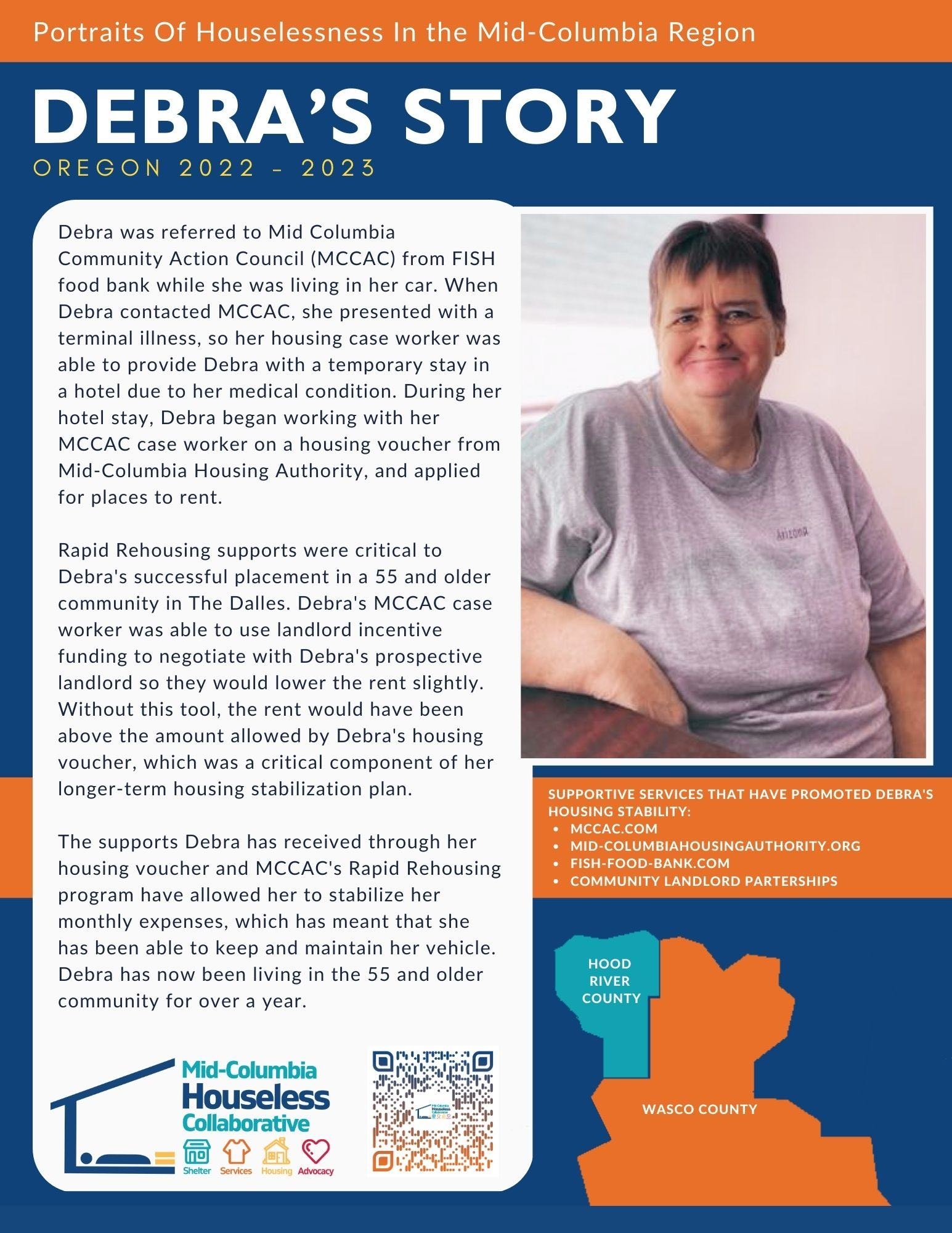
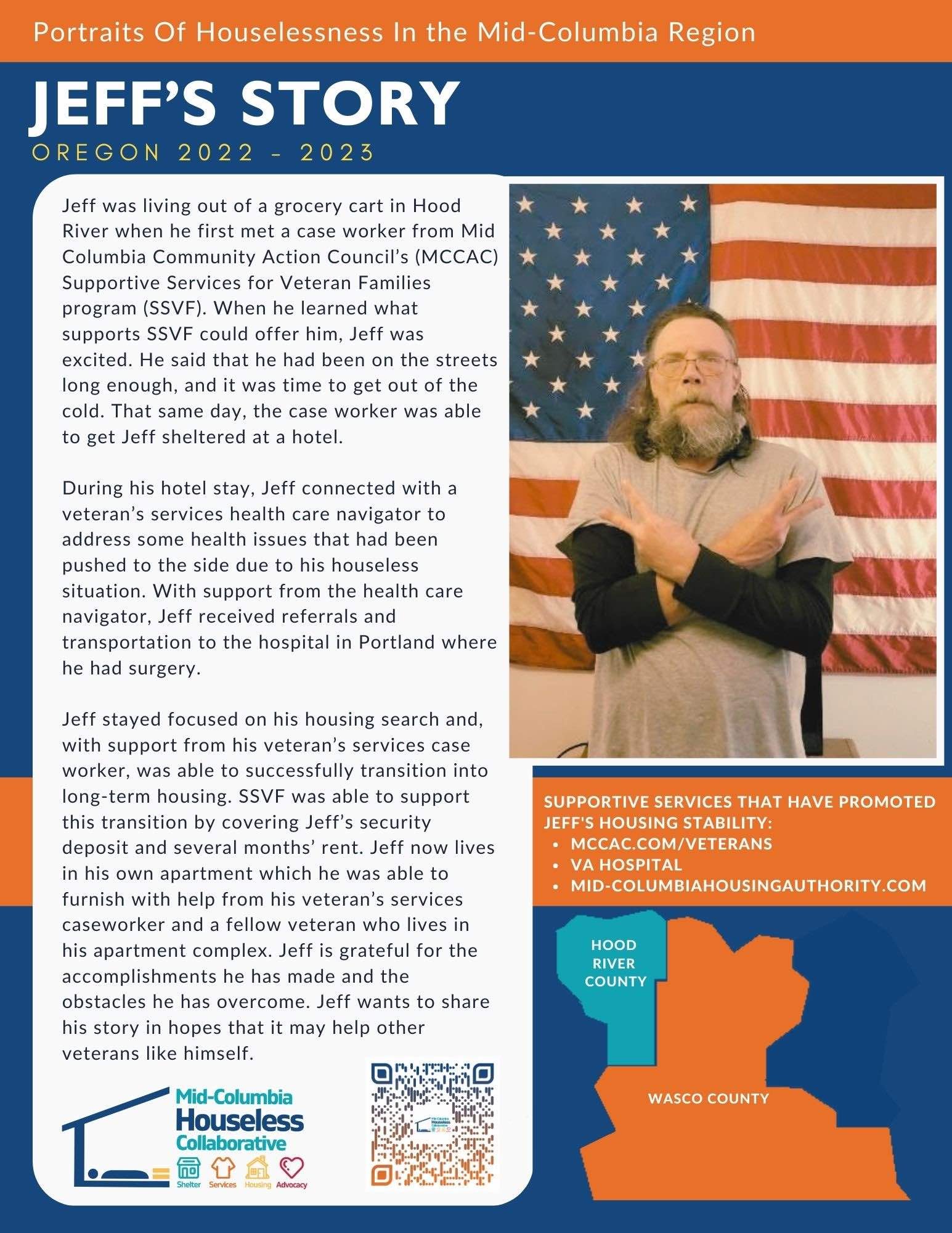
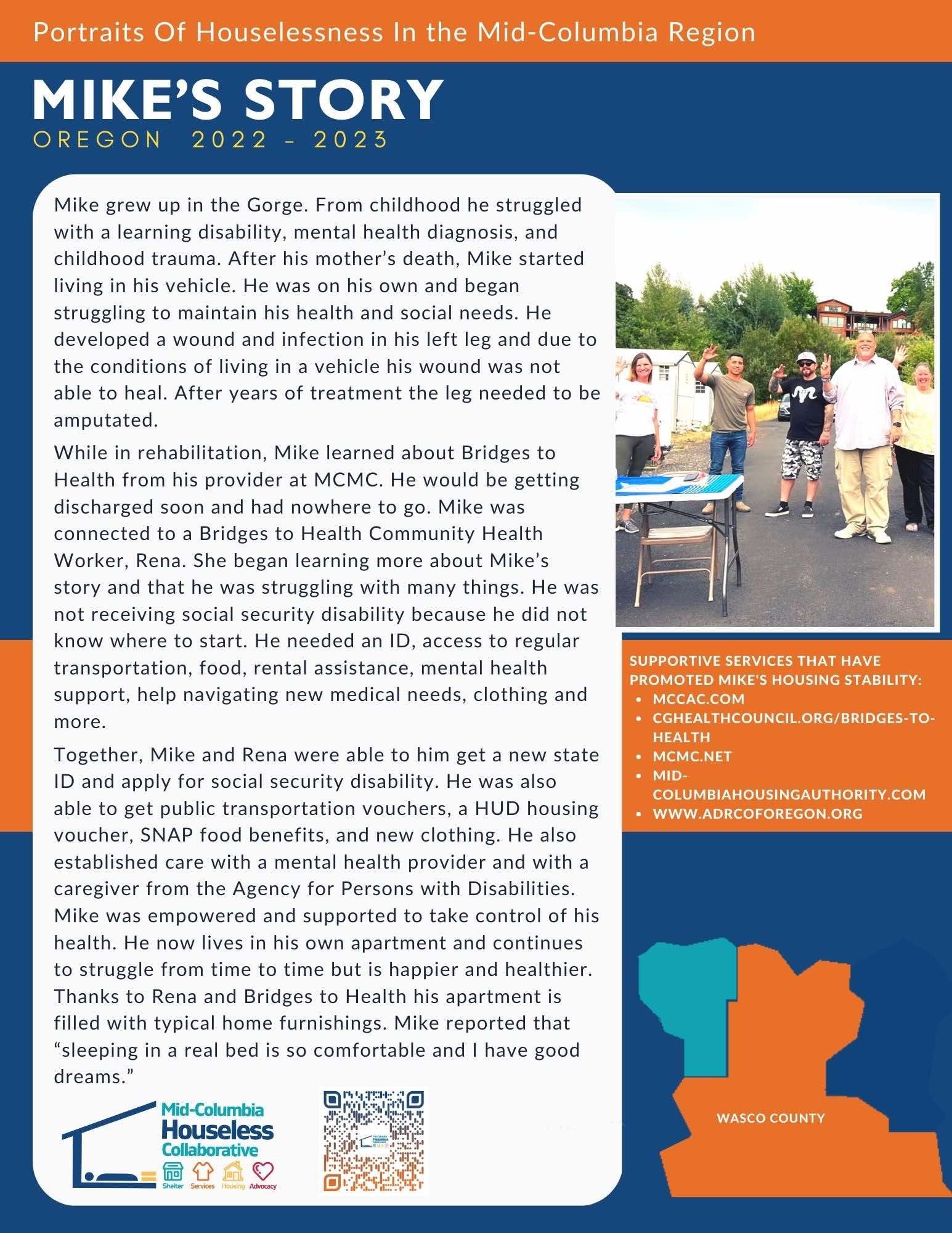
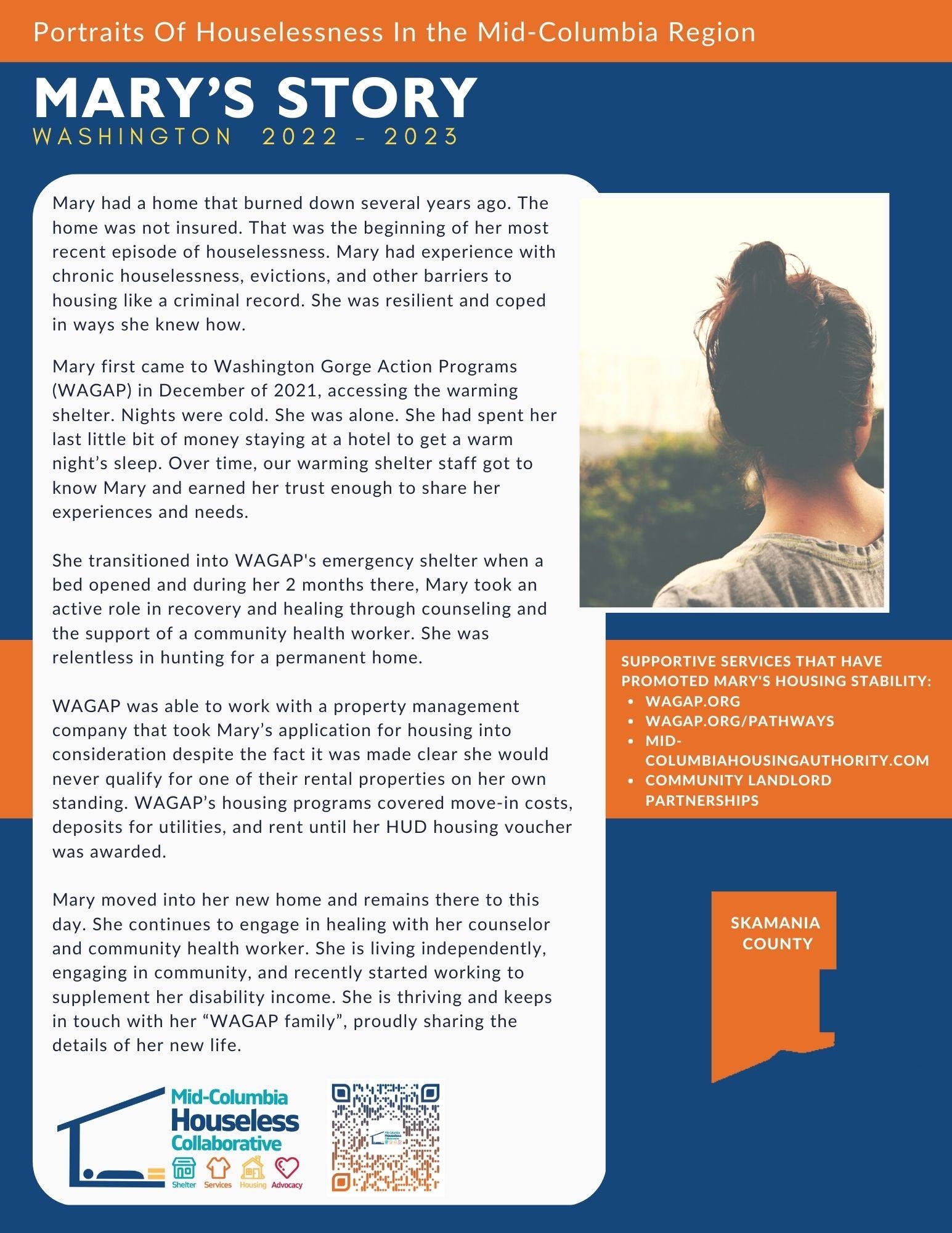
The 2022 Report for Hood River, Wasco, and Sherman Counties
The 2022 Report for Klickitat and Skamania Counties
Support Local News
All donations go to employing local people, who work hard every day to build and maintain this news service we can all enjoy. Can we count on your support?




